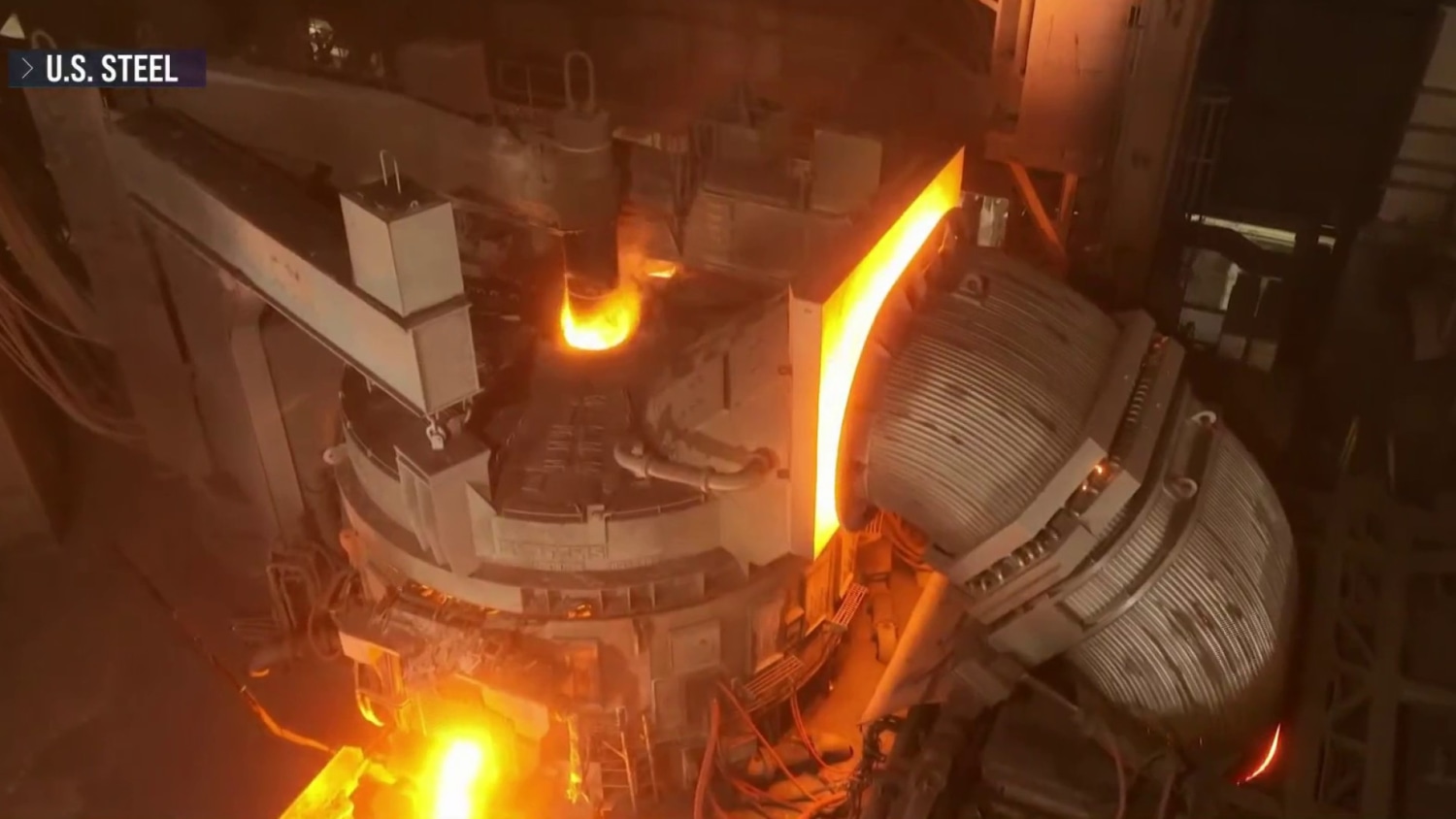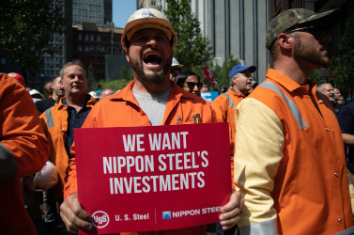The United States is opposing a Japanese steelmaker’s $14.9 billion deal to acquire U.S. Steel, citing national security concerns and a reluctance to give up a legendary American industry. The business community in Japan see election-year politics as active.
Due to what he claims are national security concerns, President Joe Biden is getting ready to publicly veto Nippon Steel’s proposed acquisition of U.S. Steel, two sources familiar with the situation revealed to NBC News last week.

This might make it more difficult to fortify relations with Japan, a crucial ally of the United States, in an effort to challenge China’s expanding influence in the Asia-Pacific region and globally. Additionally, Washington has been pressuring Tokyo to abide by US export restrictions that impede China’s capacity to manufacture cutting-edge semiconductors.
Failure of the agreement would be a “epic own goal” that would unintentionally assist China, which produces more than half of the world’s steel, in maintaining its hegemony over the global market, according to Jeff Kingston, a history and Asian studies professor at Temple University Japan.
According to Kingston’s email, the deal’s opponents “also place Japan in the unenviable company of China in terms of Washington’s politicization of economic issues.” “However, Japan is accustomed to the whirlwind that is a presidential campaign and knows that the Democrats are eager to win over Rust Belt voters.”
Along with Biden, former president Donald Trump and vice president Kamala Harris are against Nippon purchasing U.S. Steel, a company headquartered in Pennsylvania, a crucial swing state.
Even though Nippon Steel promises to maintain American control over U.S. Steel and give priority to local production in order to fulfill demand in the U.S. market, the United Steelworkers union, whose members comprise a significant voting bloc in the state, fiercely opposes the agreement.
Since the agreement was revealed in December of last year, other U.S. Steel workers have come together to support it. According to the firm, the failure of the bid would reduce the competitiveness of the US steel sector abroad and result in the loss of thousands of union jobs at blast furnace sites that could otherwise have to close.
If the sale fails, according to executives, it would also bring up “serious questions” about whether the firm will stay at its long-term headquarters in Pittsburgh.
Biden’s attempts to obstruct the acquisition have been described in the media as “insupportable and an insult to a close ally” in Japan, where the winner of this month’s leadership contest for the ruling Liberal Democratic Party will become the country’s next prime minister, according to Kingston.
The front-runner in the LDP leadership contest, Shigeru Ishiba, a former defense minister, told Reuters last week that the U.S. comments on Nippon Steel were “very unsettling” and “could undermine the trust of its allies.”
Taro Kono, a different candidate running for the digital minister position, stated that he “never imagined” the takeover would spark worries about national security and that, should he win the prime ministership, he would bring up the matter with the White House.
The United States and Japan have a connection that is “deeper, richer, and stronger than any single commercial transaction,” according to ambassador Rahm Emanuel.
The largest steelmaker in Japan, Nippon Steel, is concentrating on investments in the United States and India following its withdrawal from a nearly 50-year-long joint venture in China. If the company is unable to purchase U.S. Steel, it would deal a severe blow to its development ambitions.
The largest business association in the country, the Japan Business Federation, stated that businesses, particularly those considering US investments, were closely following the U.S. assessment process.
Masakazu Tokura, the group’s chairman, told reporters in Tokyo on Monday, “I sincerely hope that this issue is not influenced by the U.S. presidential election, and that it’s handled based on a fair and just due process.”
Last Monday, the chief spokesman for the Japanese government declined to comment on rumors that Biden might veto the sale because “it concerns the management of an individual company.”
However, Yoshimasa Hayashi, the spokesman, went on to say that increasing bilateral investment between the United States and Japan and working together on matters of economic security “are indispensable for both sides.”
Biden’s opposition to the deal, according to Long Le, an associate teaching professor at Santa Clara University’s Leavey School of Business, indicated a significant shift in American politics regarding international trade, foreign direct investment, and the degree of government involvement in industry.
Le stated that no Japanese acquisition has ever been prevented by the Committee on Foreign Investment in the United States, a division of the U.S. Treasury that examines the national security ramifications of foreign acquisitions of American companies.
In a phone interview, Biden stated that he is “still defining what is national security.” “And through this specific case, he is making it more evident than ever before that no foreign acquisition, even from an ally of the United States, can be purchased from a sector that is deemed critical.”
According to Kingston, there was hope in Japan that this was not the final word on the agreement.





